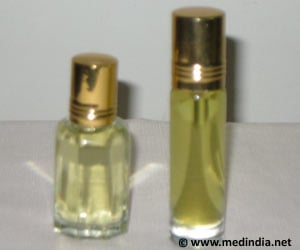
‘Avoiding triggers like fragrant soaps, wipes or detergents and proper use of moisturizers along with the prescribed steroids, without leaving the skin dry will help to manage eczema.’
Tweet it Now
Dr Noor Almaani, consultant dermatologist at The Private Clinic of Harley Street said “Dry skin is a very common problem caused by skin dehydration and loss of natural skin oils, which can be due to many factors, including a lack of humidity, using harsh soaps, the ageing process and medications.According to the National Eczema Society, in the UK, around one in five children and one in 12 adults have eczema, also known as dermatitis which adds up to more than six million.
The emotional and psychological impact of living with a skin condition is rarely discussed and National Eczema Week, which runs from 17th to 25th September aims to highlight the issue.
The discomfort, pain and irritation of eczema can affect self-esteem, relationships, careers and even be linked with depression and anxiety.
The most common form is being atopic eczema. It appears in the first few months of life and occurs in any area, the most common sites being the skin creases, neck, back of knees and elbows. Dr Almaani said: “This usually occurs in genetically susceptible individuals and is commonly associated with asthma and hay fever. It usually presents itself during childhood.”
Advertisement
Eczema tends to be more common in infants and children and many grow out of it, but it can recur later in life and can start in adulthood.
Advertisement
There is no cure but eczema can be managed by identifying triggers and finding ways to avoid them is important. Specialists can advise on coping with severe symptoms. Some people may require treatments and medications, including suitable moisturizers and steroid creams.
Very severe flare-ups may need to be protected with a suitable dressing too.
Dr Adam Friedmann of the Harley Street Dermatology Clinic said “Steroids are a valuable tool in the treatment or control of eczema, particularly during a flare-up.
There are two steps in managing eczema, the first is to moisturize. The inflamed skin needs lots of moisture and any creams should be applied multiple times in a day. The second is a mild steroid cream in order to get rid of the redness and inflammation.
Misusing the steroids leads to other problems. If instructions for treatment are followed correctly, skin can recover properly and the eczema will be much easier to manage.
Dr Friedmann said: “Living with a skin allergy can be difficult, especially when there are so many irritants in everyday household items.”
Things to be avoided are irritants such as soap, wipes and fragrances and certain washing detergents. Overheating can also trigger flare-ups, so it is advised to avoid hot baths and wearing too many layers.
Finding time to relax is vital. Dr Friedmann said: “Stress and exhaustion lower the immune system and make most rashes worse, so it’s advisable to get plenty of sleep and de-stress when possible.”
Parents should not ignore skin if it is particularly red, inflamed, or especially if it is weeping. Go to your GP early on to ask about treatments and how to move forward with a game plan that reduces your baby’s discomfort.
Webberley said: “If the eczema becomes infected, it will become resistant to the steroid cream and moisturizer, and they will stop working. If this happens, the red and inflamed skin will become more apparent and perhaps become weepy or messy. At this stage you may need some antibiotics and you should discuss this with your GP.”
Source-Medindia









